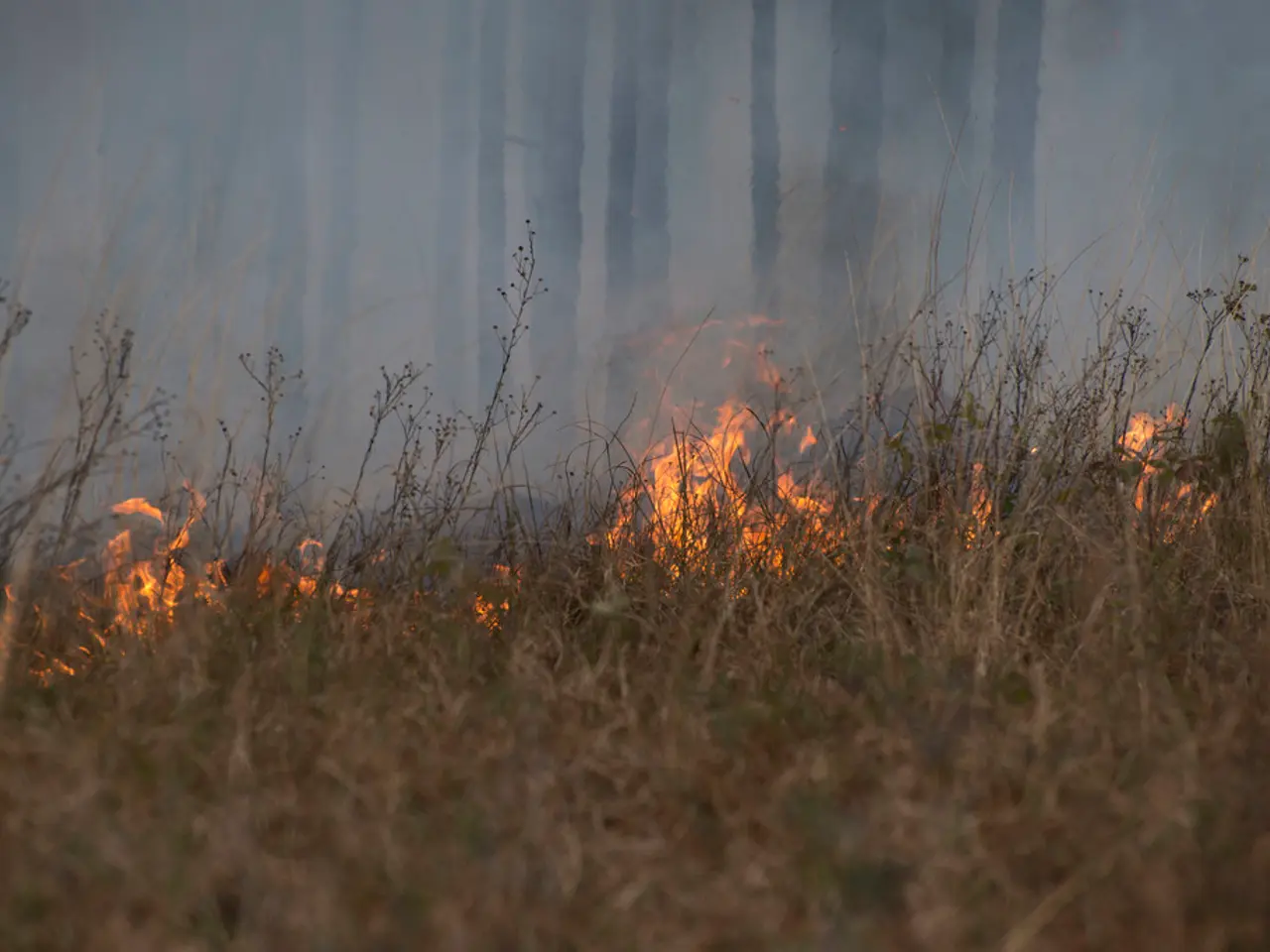South Europe and Turkey Battling Blazes
In recent weeks, Southern Europe and Turkey have been grappling with a series of devastating wildfires. The blazes, fueled by record-breaking heat, dry conditions, strong winds, and abundant combustible vegetation, have created extreme fire risk and rapid fire spread, complicating control efforts.
In Turkey, wildfires have burned thousands of hectares, forced the evacuation of over 3,500 people, and resulted in fatalities among both civilians and firefighters. For instance, fires near Bursa have threatened the city’s outskirts, requiring large-scale firefighting efforts, including aerial support, and the declaration of disaster areas. Similar fire outbreaks have been reported near Izmir, with 11 aircraft deployed to combat them.
Greece and Bulgaria are also contending with multiple fires under comparable weather conditions. In Greece, no all-clear has been declared due to the continued high wildfire risk. The Greek fire service is on high alert due to expected local windy conditions, which can drive flames forward and hinder extinguishing efforts.
Spain and Portugal have also experienced wildfires. In Spain, the second major wildfire in Las Hurdes was brought under control by emergency services. However, the wildfire risk remains extremely high in the south of the island of Euboea, in the east of Crete, and in the region around Athens.
Sardinia in Italy has also seen several fires extinguished this week. In Italy, the wildfire risk remains high, especially in the south of the country, with the island of Sicily being particularly affected. More than 3,700 fires were registered between May and the end of July alone in Italy, according to the local forestry authority.
Elisio Oliveira, the head of civil protection in Portugal, has stated that a new heatwave with temperatures exceeding 40 degrees Celsius is expected in the coming days, which will also affect neighboring Spain. In Portugal, the wildfires near Ponte da Barca are mostly under control, but the situation remains challenging due to unfavorable weather conditions. A second large fire near the Portuguese small town of Arouca has been brought under control.
Firefighters in Southern Europe and Turkey are deploying combined air and ground resources to control wildfires, focusing on rapid evacuation, resource supply (e.g., water, meals, medical aid), and prevention measures urged during extreme heat warnings. However, the availability of fuel combined with wind-driven fire spread complicates containment efforts.
Since the beginning of the year, over 70,000 hectares of forest, bush, and farmland have been destroyed by wildfires in Portugal and Spain. More than 2,000 wildfires have broken out in Turkey this year so far, according to the Ministry of Forestry and Environment. At least 14 people have died in the fires in Turkey, including firefighters.
The lengthening and intensifying wildfire season in Southern Europe demands upward trends in preparedness and cross-border cooperation. The devastating wildfires in Turkey, Greece, Portugal, and Spain serve as a stark reminder of the dangers posed by climate change and the urgent need for effective wildfire management strategies.
[1] Anadolu Agency [2] BBC News
- The wildfires in Turkey, fueled by extreme weather conditions, have significantly impacted environmental-science studies, particularly weather-forecasting, as these events offer unique insights into the impact of climate-change on the region.
- As wildfires continue to ravage Southern Europe and Turkey, the need for advancements in science, specifically weather-forecasting, becomes increasingly apparent to better predict and prepare for such disasters.
- In light of the ongoing wildfires in Southern Europe and Turkey, there is a growing consensus among scientists that the science of environmental-science, particularly climate-change research, should prioritize understanding the correlation between weather patterns and wildfire risk, in order to develop effective mitigation strategies.








